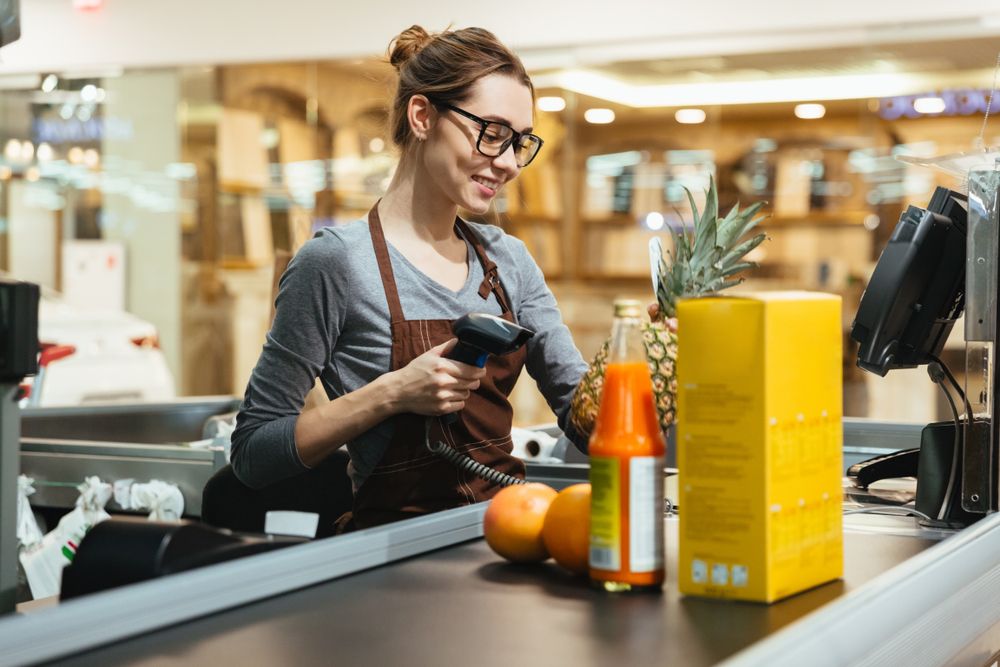Modern day supermarkets face growing challenges which makes success in this market increasingly difficult. With issues such as increased customer expectations, greater food choices, the rise of online ready-made meals, and competition with rival stores, supermarkets must continually implement measures to promote growth. While there are simple steps that supermarkets can take to ensure success, such as taking out supermarket insurance, it can be a complex landscape to navigate. So, what measures can supermarkets put in place to stay ahead? Today, we explore steps that supermarkets can take to ensure continued success into the future.
Embracing technology
Supermarkets of all sizes, including smaller operators who have tended to embrace a more traditional mode of operation, should consider how technology can assist with growth. With the increased demand for online shopping options, supermarkets are increasingly embracing online shopping where customers can opt for home delivery or in-store collection. New self-serve checkout systems can reduce the costs of labour and computing systems can reduce human error by employing complex algorithms to make stock management simpler and more accurate. The use of the available technology needs to be balanced with the budget and requirements of the individual supermarket.
Creating a point of difference
When it comes to competing in the marketplace, supermarkets are finding success by creating a point of difference to increase brand awareness and promote customer loyalty. In the case of large supermarkets, this may be in the form of offering regular price drops, providing a large range of items and creating label lines attached to the supermarket. Although these practices have been common for an extended period of time and would come as no surprise, supermarkets can become increasingly creative about responding to the needs of customers. This could include sourcing locally produced items, creating a space for customers to seat and eat, meal options for take-away, and co-locating with other businesses such as coffee shops. Supermarkets need to focus on familiarising themselves with the customer demographic to respond to their specific needs.
Improve efficiency
The old adage to work smarter, not harder, certainly applies when considering how to improve efficiency for supermarkets. Removing unproductive products is a good way to start – consistently review the performance of products on the shelf rather than automatically restocking. Underperforming products can then be removed and replaced for a product which performs better. When it comes to staffing, understand the peak shopping hours in store and ensure your shift schedule appropriately caters to the influx of customers. Although streamlining the cost of labour is important, this should not be to the detriment of customer service. In some cases, in-store pick up options can also improve efficiency, even for smaller operators, as it allows for staff to select items during quieter periods and allows for convenience to the customer.
Focus on staff training
Although the increase in automation with advances such as self-serve checkouts and online shopping are positive, supermarkets can’t underestimate the importance of excellent customer service. This means ensuring that there is both initial and ongoing staff training so staff are well equipped to address issues and questions raised by customers. It’s important to remember that fully trained staff who are able to carry out their duties efficiently can reduce unnecessary additional labour costs. Part of ensuring a positive experience for customers is also providing incentives for employees for staff retention. This includes providing competitive pay, offering attractive career pathways for staff and ensuring staff recognition where possible.
Protect the risks of your business
When it comes to protecting your risk exposures, it’s essential that supermarkets have the right level of insurance cover in place. The cover you require will depend on the individual circumstances of your business and the cover which is typically included in your supermarket insurance package will include:
- Property Insurance (building, contents and stock)
- Public and Product Liability
- Machinery Breakdown
- Theft and Property Damage
- Money
- Workers Compensation
- Cyber Insurance
- Business Interruption
- Glass Cover
- Commercial Property
- Electronic Equipment
Ascertaining the right level of cover can be a challenge given the complexity of the industry GSK Insurance Brokers have extensive knowledge of the supermarket industry and have worked with supermarkets on a local and national level. Speak with our brokers today for more information.
Leading the insurance industry
GSK Insurance Brokers are one of Australia’s leading insurance brokerages and our in-depth knowledge ensures risk mitigation solutions to protect your business. We understand that every business is unique which is why our experienced brokers will take the time to get to know the unique challenges that you face. With 40 years of experience in the insurance marketplace, we protect the future growth and success of your business.
For more information about how we can support you with supermarket insurance, speak with GSK Insurance Brokers today.


